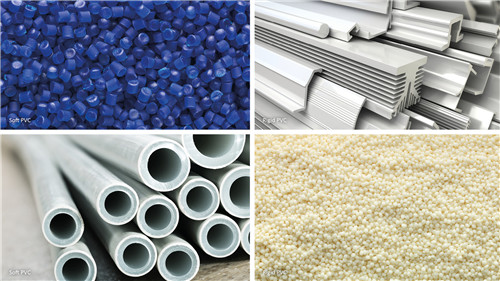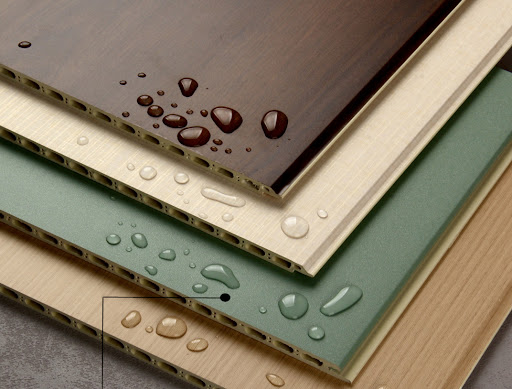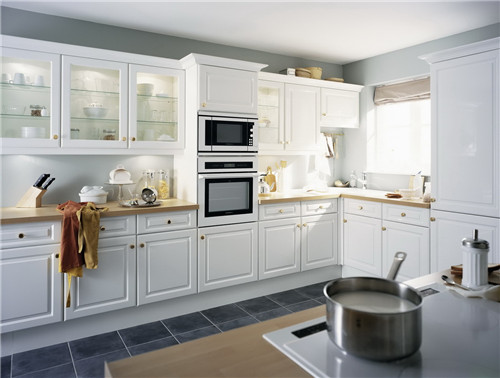Recent times have seen the remarkable popularity of PVC (Polyvinyl Chloride) panels as a material in residential and commercial construction. They are versatile, durable, and aesthetically appealing; due to these 3, panel users raise a consistent question of whether the panels are waterproof or not. And the simple answer is that indeed, panels made from PVC are waterproof. Let’s find out what makes a PVC panel waterproof; the benefits one can derive from; and their application in different setups.
Understanding PVC Panels
PVC panels consist of Polyvinyl Chloride, which is a durable and robust plastic. They are lightweight enough for convenient handling and placement but strong enough to handle severe rough use. Manufactured in various patterns and colors, and different types of finishes, PVC Panels can be customized according to requirements. This may be in the modern angle with minimalism or a more classic charm.
Why PVC Panels are Waterproof
PVC panels are waterproof as a feature of the material itself and the design. This is because PVC is a water-repellent material—water does not penetrate or is not absorbed. Such principles make any material, which is mainly based on plastic, ensure that PVC panels are not moistened—the way organic materials, especially that of wood or others, swell, get distorted, or rot from continual exposure to water. Further, the PVC panels are fitted with interlocking or tongue-in-groove systems such that once they are installed, what comes out is a smooth finish that will not allow water through. The porosity of a PVC panel does not allow water to penetrate; instead, the water runs off from it, avoiding water damage, and it is easy to clean since a PVC panel has a non-porous surface.
Material Composition
PVC is an acronym for Polyvinyl Chloride which is an artificial polymer compounded with additives providing augmented performance such as plasticizers for flexibility, heat resistance stabilizers, and fillers for added strength. The resultant product guarantees durability and therefore stands exposure to moisture for long periods without damage. The intrinsic properties of PVC make it a resistant material to water, chemicals, and UV rays. Because of such resistance, PVC panels do not lose their form and design even with immense water content in the atmosphere. The PVC does not expand laminate or corrode like wood owing to its superb resistance to water.

Installation
One of the main characteristics that bring out the waterproof nature of PVC panels is how they are installed. Very often, PVC panels come in designs where they have been interlocked or with the use of tongue and groove, making the finish seamless. That means no water will seep through in between gaps in the panels. Installation should be done properly to possess the waterproof qualities that are there in PVC panels. The panels, when properly installed, provide a continuous impervious surface that protects the constructed structure against water damage. The seamless method of installation also gives PVC panels an appealing appearance due to the smooth and uniform look.
PVC panels are non-porous
Their surface does not absorb the water. Water would merely run off the surface so it does not penetrate the material. Similarly, this minimizes any challenge of water damage; they make it very easy to clean PVC panels. The panels are also not porous and, therefore, do not provide a suitable breeding area for any mold and mildew, which are common lovers of a place with dampness. A non-porous surface is especially effective in those areas where humidity or exposure to water is abundant, like kitchens and bathrooms. Consequently, these panels must remain problem-free from damp environments, as moisture can affect the look and compromise the functionality of the panels.
Product Benefits of Waterproof PVC Panels
Best for Wet Areas
PVC panels are ideal for highly exposed and vulnerable spaces, like bathrooms, kitchens, laundry rooms, basements, and garages. They prevent wall damage from water. This way, the wall will not develop water issues and will last long, reducing the cost of maintenance comparatively. In commercial applications, PVC panels provide water protection in cases like car washes, swimming pools, spas, and healthcare facilities. In residential bathrooms, for example, PVC panels can be installed on walls and ceilings to protect the two from water damage, mold infestation, and staining. Available in numerous styles and colors, PVC panels help to uplift the aesthetic features in bathrooms, along with the general waterproofing practicality.
Easy to Clean and Maintain
The PVC panels are, of course, able to be easily cleaned because they are fully waterproof. They can be cleaned with a single mop to remove dirt, stains, or grime, while there are no necessities for any special type of cleaning agents or several procedures to carry out the cleaning process. All this is time-efficient and very easy to maintain, making it quite a practical option for busy households or commercial spaces. The PVC panels can also be used in kitchens through backsplash, wall covering, and ceiling panels, thereby protecting against spills, splashes, and steam. The panels have an easy-to-clean surface; the very reasons they are best for spaces desirable of hygiene and quick cleaning. PVC being artificial, it is easily adjustable; therefore, the make of PVC panels in different designs allows them to suit the creation of custom kitchens that put into consideration the concept of both beauty and functionality.
Waterproof
Being waterproof, PVC panels also resist scratches, impacts, and chemicals. This is what makes them very durable and able to stand the rigors of activity daily in high-moisture conditions. In addition, they do not depreciate either in their looks or in their function. In contrast with traditional materials, PVC panels do not suffer from any form of wear and tear brought about by moisture, hence lasting longer.

Can be used in Commercial Places
It has a very wide field in commercial places such as restaurants, for instance, hospitals, etc., to offer full regard to hygiene and durability. The PVC panels will offer a clean, waterproof surface in answering all the requirements easily of cleaning and sanitizing and will need little maintenance. Besides all the practical reusability, even printed properties, such as logos, patterns, and colors, for commercial usage will suit the branding and aesthetics of commercial usage.
Aesthetic Appeal
The PVC panels are very versatile, with many designs, colors, and finishes; they can even imitate wood, stone, and marble, giving a fashionable feeling to this practical problem. They can be applied to create either modern, streamlined interiors or traditional, home-like spaces, all with the advantage of being water-resistant at the same time. Prerequisites such as these are allowed by the design flexibility of the PVC panels, bringing to life the desires of the homeowner and designer without compromising functionality.
Seamless Transitions
The PVC panels can also be used advantageously for transitions indoors and outdoors; for instance, on covered patios, carports, and outdoor kitchens. They last long even in regions with extremely unsheltered climatic conditions because of their moisture, UV, and weather-resistant properties.
Economical
PVC paneling generally costs much less than ceramic tile, natural stone, or wood. This makes the investment attractive for cost-sensitive projects. What’s more, PVC paneling may be mounted easily and with much less installation cost in maintenance, contributing to the long-term cost-effectiveness of a good property investment.
Affordable
The cheapness factor of PVC panels does not affect quality or long-lasting properties. Being cost-effective, PVC panels deliver outstanding performance with longevity, thus proving this to be a value-for-money product.
PVC Panel Applications
Residential Bathrooms
PVC panels work very well in the bathrooms because of the level of consistent high humidity they can hold. They can be used on the walls and the ceiling, to prevent damage from water and moisture, and avoid staining in the bathrooms. The fact that they come in different colors and styles allows PVC panels to also further amplify the aesthetic facet of the bathroom while availing the waterproofing advantage. PVC bathroom staff also ensure a hygienic and low-maintenance solution. Their non-porous surface ensures that no mildew is harbored and that the place remains clean. They can also be customized and engineered to create shower enclosures, wainscoting, and ceiling treatments that perfectly fit the style in mind.
Kitchens
The PVC panels can hence be used in kitchens as backing walls, ceiling panels, and even wall coverings. They can save against spillages, splashes, and steam. The easy-to-clean feature makes the owners of a home vividly cook without any fear. The versatility of the PVC panels enables homeowners to create custom kitchen designs that will be functional and attractive. This makes kitchens enjoy the long-lasting and waterproof solution that allows them to easily face daily pressures. The easy-to-clean PVC panels help maintain the kitchen with the least input; hence, they prevent food splashes and grease from affecting the walls’ appearance. The panels can also be fixed onto kitchen islands, cabinetry, and walls to act as the kitchen’s decoration.
PVC panels work best in all commercial applications that involve restaurants, hospitals, and retail stores, among others, in which hygiene and durability stand critically. They provide a clean, waterproof surface easily sanitized and scrubbed over. Besides, PVC, other than its practical uses, can be tailored with logos, patterns, and coloring for an added visual impact and to generally aid in the branding of the premises. In commercial kitchens, hygienic PVC panels are easy to clean and meet required health standards. They can be installed on walls, ceilings, or countertops to give a seamless and tough surface that is resistant to moisture and staining. In hospitals, PVC panels offer a hygienic and low-maintenance solution to patient rooms, operating theaters, and waiting areas.

Outdoor Applications
PVC panels are mainly used indoors, whereas some outdoor uses, such as in covered patios, carports, and outdoor kitchens, can be applicable. In outdoor PVC applications, the panels can resist moisture and UV light. In the outdoors, the panels will therefore provide the average fluid feeling between the interior and the outer living area, a nice design statement. It is waterproof for outdoor kitchens so it is tough to take abuse from elements. It can be used on countertops, cab which dry and walls for a smart, uniform design. On the other hand, PVC panels on walls and ceilings in a covered patio have an ample advantage since they can be a maintenance outdoor living area heaven. With them, an investor remains functional during any weather conditions. The panels are waterproof without the need for water-, mold-, and mildew-resistant coatings because of their material properties, seamless installation, and non-porous surface.
Conclusion
There are not only waterproof benefits of PVC panels but also durability, low maintenance, aesthetic adaptability, and good value. In this sense, PVC panels enhance the value of the given space for practical and aesthetic enrichments. This makes PVC panels a good investment for homeowners and businesses; they get a durable, low-maintenance finish that looks good for a long time.
Know more at:
Are PVC Panels Resistant to Fire?
Can You Put PVC Panels in a Shower?
Post time: Aug-06-2024
